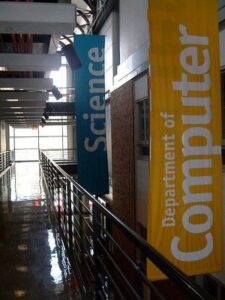I was reading a story about a debt free community college program in Kansas that amounts to a 2-for-1 for students there. Garden City Community College offers an agricultural technology program that students can graduate from debt free. The agricultural technology program is one of just 16 such programs in the world. Its graduates are in high demand, and they graduate with no debt.
The ag industry is growing. According to the Bureau of Labor Statistics, it projects the industry to grow by 7% between now and 2028. That’s faster than average. The ag industry isn’t just farming. Food science technicians, farm machinery repair and even agriculture related businesses will experience growth. Farming is a high-stakes game these days. With significant changes in weather patterns and growing seasons, simply planting crops can be a major financial gamble. Yield becomes exceptionally important, and farmers have gone high-tech to mitigate their risks.
The program at Garden City CC has almost 3 dozen students enrolled and they’re looking for more. One student reported that following graduation, he had a guaranteed job for five years. Each student in the program is being sponsored by a business in the agriculture industry. The sponsor pays the student’s tuition and often offers the student a guaranteed five-year employment contract following graduation. The student graduates with no debt and a job. For the price of the student’s books and tuition, the employer gets a fully trained employee. Employers also get the certainty of knowing what the student/employee’s educational background consists of.
A workable debt free community college program model
According to the 2019 Washtenaw County Equalization Report, agricultural property accounts for about 2.5% (by value) of property here. 2.5% isn’t much, but agricultural land accounts for about 21% of Lenawee County’s valuation. Such a program would be a way to draw more students from Lenawee County. And it provides an opportunity to create a valuable job opportunity for people interested in agricultural programs. If WCC worked with Michigan State University for example, it could create a clear transfer path for students who wanted to transform an agriculture technician degree into a bachelor’s degree in an agriculture-related field.
Beyond agriculture, the Garden City program illustrates a workable model for any employer in any industry with unfilled jobs that is looking to create a cost-effective school-to-work pipeline. In the space of two years, the student receives a debt free education. For less than $7,500, the employer receives a trained employee and a pool from which to draw when filling additional open positions.
Piloting a debt free community college program (in any high-demand field) would be one way to demonstrate the validity of this approach. The WCC administration is leery of the growing interest in “free college” programs. The sponsorship approach would provide that exact benefit without – as Trustee Richard Landau put it – leaving WCC “holding the bag.”
A debt free community college program is only hard when the WCC administration and elected Trustees choose to look at the challenge as a political problem, rather than a practical one. “Free college” doesn’t have to be a handout, but it does require creativity, a commitment to the mission of educating people, and a true understanding of the needs of the community.
In other words, it requires authentic educational leadership.
Photo Credit: Penn State University , via Flickr.com











